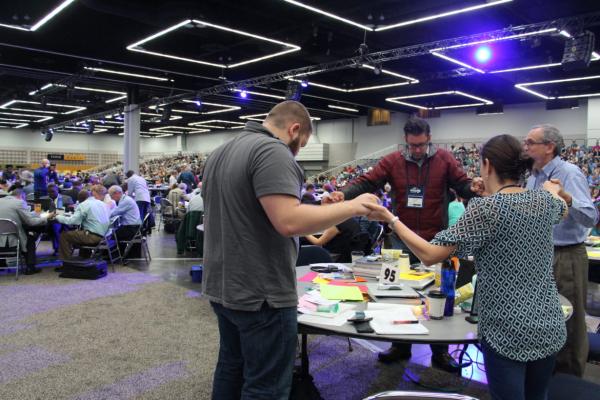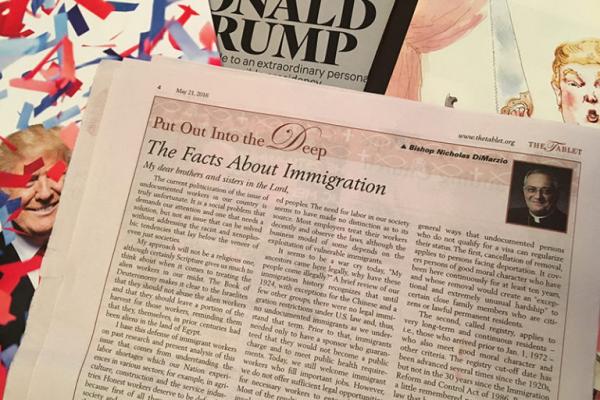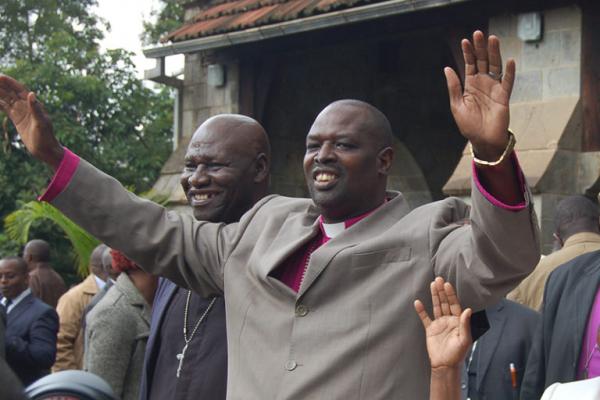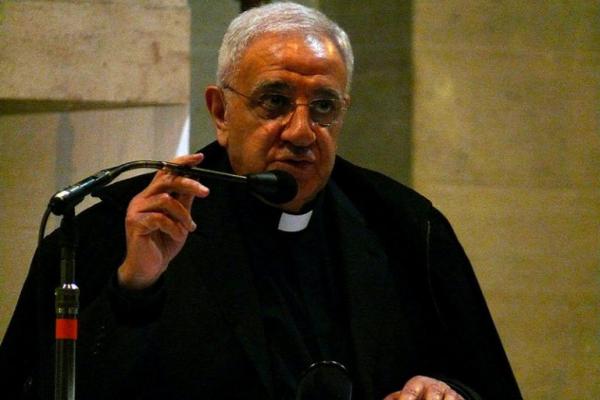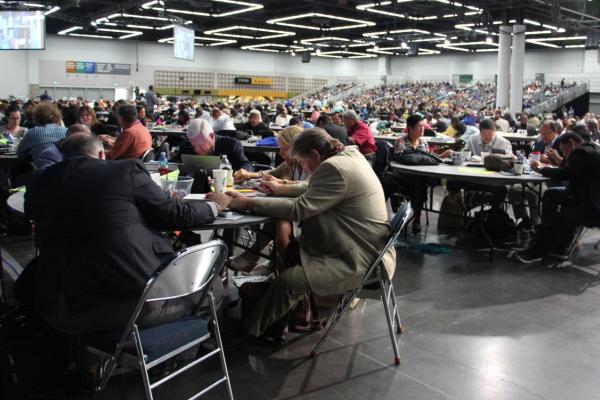A Baltimore judge found Officer Edward Nero not guilty on all four of the charges he faced in connection with the death of Freddie Gray, reports ABC News.
The debate — over how to debate the rules — became so convoluted that at one point Missouri delegate Margie Briggs called for prayer and said:
“I believe we are confusing God at this point.”
The Roman Catholic bishop of Brooklyn, one of the largest and most diverse dioceses in the U.S., is defending immigrants in a powerful essay that — without mentioning names — seems to take direct aim at Donald Trump and his supporters by ripping the “racist and xenophobic tendencies” in society and arguing that immigration in fact helps the economy.
Bishop Jackson Nasoore Ole Sapit, a traditionalist who nonetheless steered clear of gay issues, has been elected the new archbishop of Kenya.
Ole Sapit, 52, who headed Kericho Diocese in western Kenya, will replace outgoing Archbishop Eliud Wabukala and also serve as bishop of All Saints Cathedral, the national seat of the Anglican Church.
The Rev. Jerry Kulah has nothing but gratitude for the United Methodist Church.
In 1833, American Methodists sent their first missionary to his country, Liberia, which was founded for freed American slaves. Melville B. Cox died four months after he arrived in Africa, but the missionary’s legacy lives on in the United Methodist Church’s fastest-growing region, and in his words to his own church back in North Carolina: “Let a thousand fall before Africa be given up.”
For years, seminaries and monasteries around France sent students and novices to Monsignor Tony Anatrella, a prominent French priest and therapist who has written disparagingly of gays, if their superiors decided the young men were struggling with homosexuality.
For the past week, news sources have been abuzz about Pope Francis’s announcement to create a commission to study women deacons. It’s an initiative worthy of talk, but there’s more to the story.
1. The Sour Lemonade Review
Ebony Magazine writer Jamilah Lemieux gives her insightful take on prolific black feminist bell hooks’ controversial and critical review of Beyonce’s ‘Lemonade.’ Is the newest wave of feminism drifiting away from the ideology of their predecessors?
2. Jane the Virgin, the Book of Ruth and Latina Identity
Karen Gonzalez considers the complexities of Latina identity on TV. The Virgin, the Bombshell, the Maid…How does a real-life Christian Latina respond?
3. Suicide Rates are Alarmingly High
May is Mental Health awareness month and these suicide statistics are causing talk of a national health crisis. What is it about today’s world that is leading to this upsurge in suicide?
Amid protest, song, and fears of a denominational breakup, United Methodists at their quadrennial General Conference decided yet again not to decide anything regarding LGBT rights.
But in a groundbreaking move, the delegates from the U.S. and abroad voted 428-405 on May 18 to allow the church’s Council of Bishops to appoint a commission to discuss whether to accept same-sex marriage or ordain LGBT clergy.
Sexual assault in the military has been a major issue for decades, and not only are the victims traumatized — they’re punished for speaking out. Human Rights Watch issued a new report and short documentary exposing how sexual assault and harrassment survivors have been discharged for "personality disorder."

